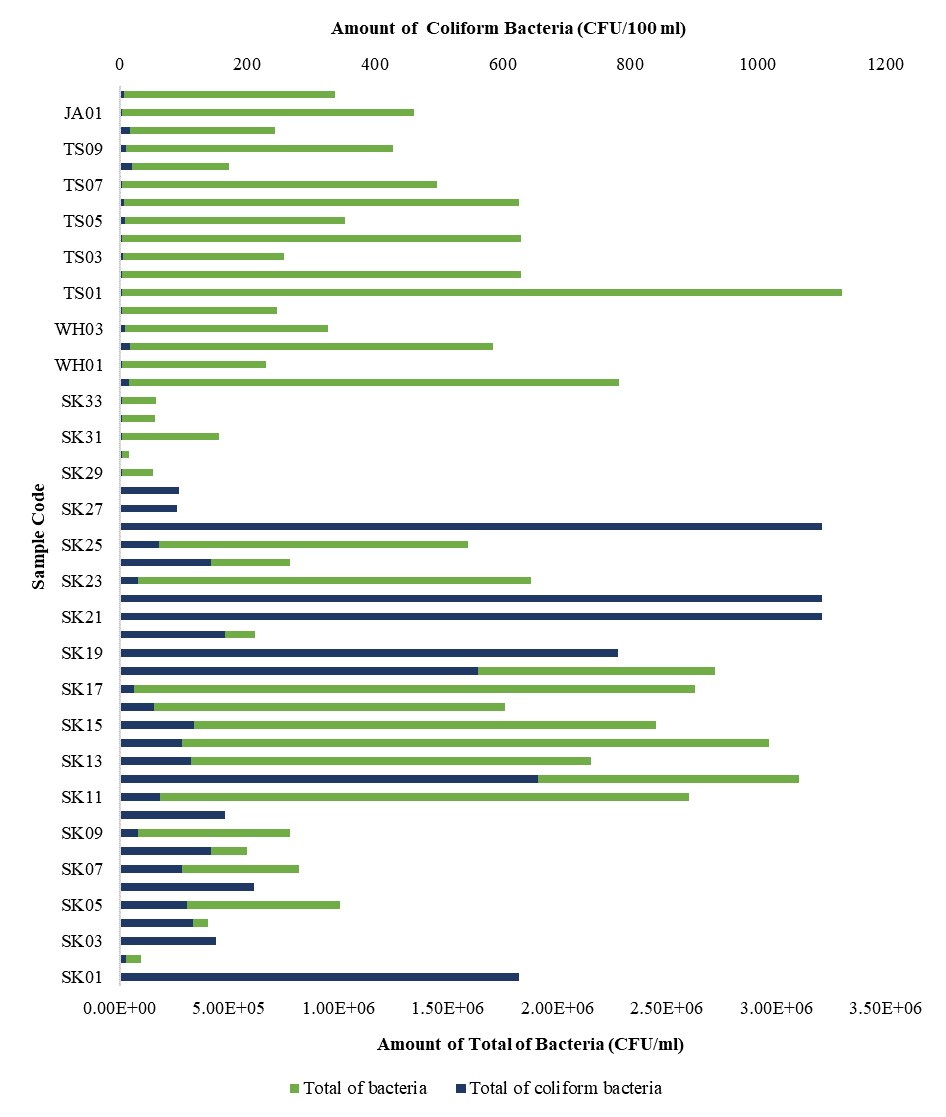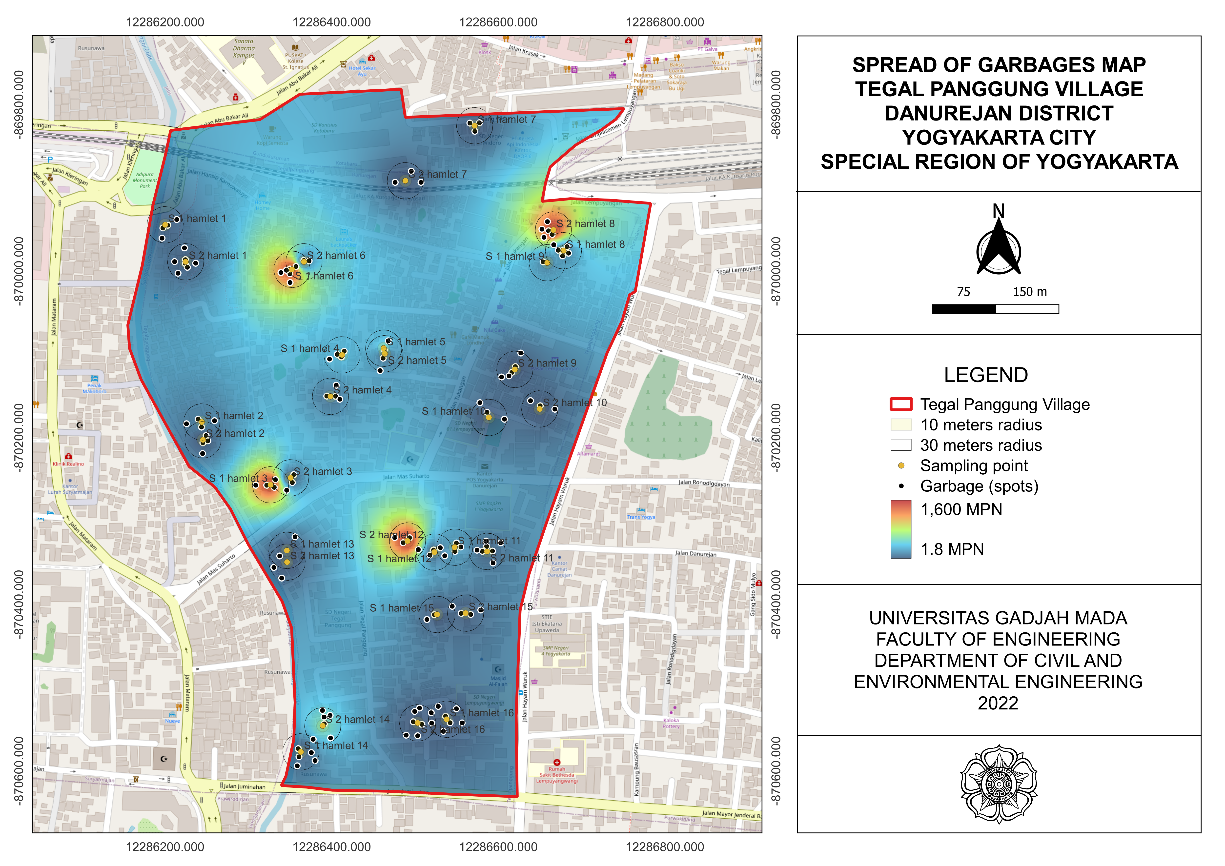Potential Transmission of Filariasis for Pregnant Women in Subdistrict Muara Pawan, Ketapang District, Province of West Kalimantan
Downloads
Ansyari R. (2004). Analisis faktor risiko kejadian filariasis di dusun Tanjung Bayur desa Sungai Asam Kecamatan Sungai Raya Kabupaten Pontianak. Tesis. Semarang: Universitas Diponegoro. Ardias, Setiani, O., dan Hanani, Y. (2012). Faktor lingkungan dan perilaku masyarakat yang berhubungan dengan filariasis di Kabupaten Sambas. Jurnal Kesehatan Lingkungan Indonesia. Vol. 11(2): 199–207. Chin J, Kandun N, editors. (2006). Manual pemberantasan penyakit menular. Jakarta: CV. Informatika. Departemen Kesehatan Republik Indonesia. (2006). Pedoman Pelayanan Farmasi untuk ibu hamil dan menyusui. Jakarta. Departemen Kesehatan Republik Indonesia. (2009). Undang-Undang No. 36 Tahun 2009 tentang Kesehatan. Jakarta. Dinas Kesehatan Provinsi Kalimantan Barat. (2014). Profil Dinas Kesehatan Provinsi Kalbar tahun 2014. Provinsi Kalimantan Barat. Dinas Kesehatan Kabupaten Ketapang. (2014). Profil Dinas Kesehatan Kabupaten Ketapang. Kabupaten Ketapang. Harrison, B.A. dan Scanlon J.E. (1975). The Subgenus Anopheles in Thailand (Diptera: Culicidae): Medical Entomology Studies-II. Hutagalung, J., Hari, K., Supargiyono, dan Hamim, S. (2014). Faktor-Faktor Kejadian Penyakit Lymphatic filariasis di Kabupaten Agam, Provinsi Sumatera Barat Tahun 2010. OSIR. Vol. 7(1): 9–15. Kadarusman. (2003). Faktor-faktor yang berhubungan dengan kejadian filariasis di Desa Talang Babat
Kecamatan Sabak Kabupaten Tanjung Jabung Timur Provinsi Jambi. Tesis. Jakarta: Universitas Indonesia. Kementerian Kesehatan Republik Indonesia. (2012)a. Pedoman pemberantasan filariasis di Indonesia: Penatalaksanaan penderita filariasis. Jakarta: Direktorat Jenderal Pencegahan Penyakit dan Penyehatan Lingkungan. Kementerian Kesehatan Republik Indonesia. (2012)b. Pedoman pemberantasan filariasis di Indonesia: Epidemiologi filariasis. Jakarta: Direktorat Jenderal Pencegahan Penyakit dan Penyehatan Lingkungan. Kementerian Kesehatan Republik Indonesia. (2014). Peraturan Menteri Kesehatan Republik Indonesia Nomor. 94 Tahun 2014 tentang Penanggulangan Filariasis. Jakarta. Lindsay, S., Ansell, J., Selman, C., Cox, V., Hamilton, K., dan Walrave, G. (2000). Effect of pregnancy on exposure to malaria mosquitoes. Lancet. Marzuki. (2008). Faktor lingkungan dan perilaku yang berpengaruh terhadap kejadian filariasis pada daerah endemis filariasis di Kecamatan Maro Sebo Kabupaten Muara Jambi Propinsi Jambi. Tesis. Semarang: Universitas Diponegoro.
Nurjazuli. (2015). Entomologi survey based on lymphatic Filariasis locus in the district of Pekalongan city Indonesia. IJSBAR. Vol. 22(1): 295–302. Stojanovich, C.J. dan Scott, H.G. (1966). Illustrate key to Mosquitoes of Vietnam: Department of Health, Education and Welfare Public Health Service: Atlanta. Syuhada, Y., Nurjazuli, dan Wahyuningsih, N.E. (2012). Studi kondisi lingkungan rumah dan perilaku masyarakat sebagai faktor risiko kejadian filariasis di Kecamatan Buaran dan Tirto Kabupaten Pekalongan. Jurnal Kesehatan Lingkungan Indonesia, Vol. 11(1): 95–101. World Health Organization. (2010). The regional strategic plan for elimination of lymphatic filariasis 2010–2015. India.
2. Formal legal provisions to access digital articles of electronic journal are subject to the provision of the Creative Commons Attribution-ShareAlike license (CC BY-NC-SA), which means that Jurnal Kesehatan Lingkungan is rightful to keep, transfer media/format, manage in the form of databases, maintain, and publish articles.
3. Published manuscripts both printed and electronic are open access for educational, research, and library purposes. Additionally, the editorial board is not responsible for any violations of copyright law.
JKESLING by UNAIR is licensed under a Creative Commons Attribution-ShareAlike 4.0 International License.







































